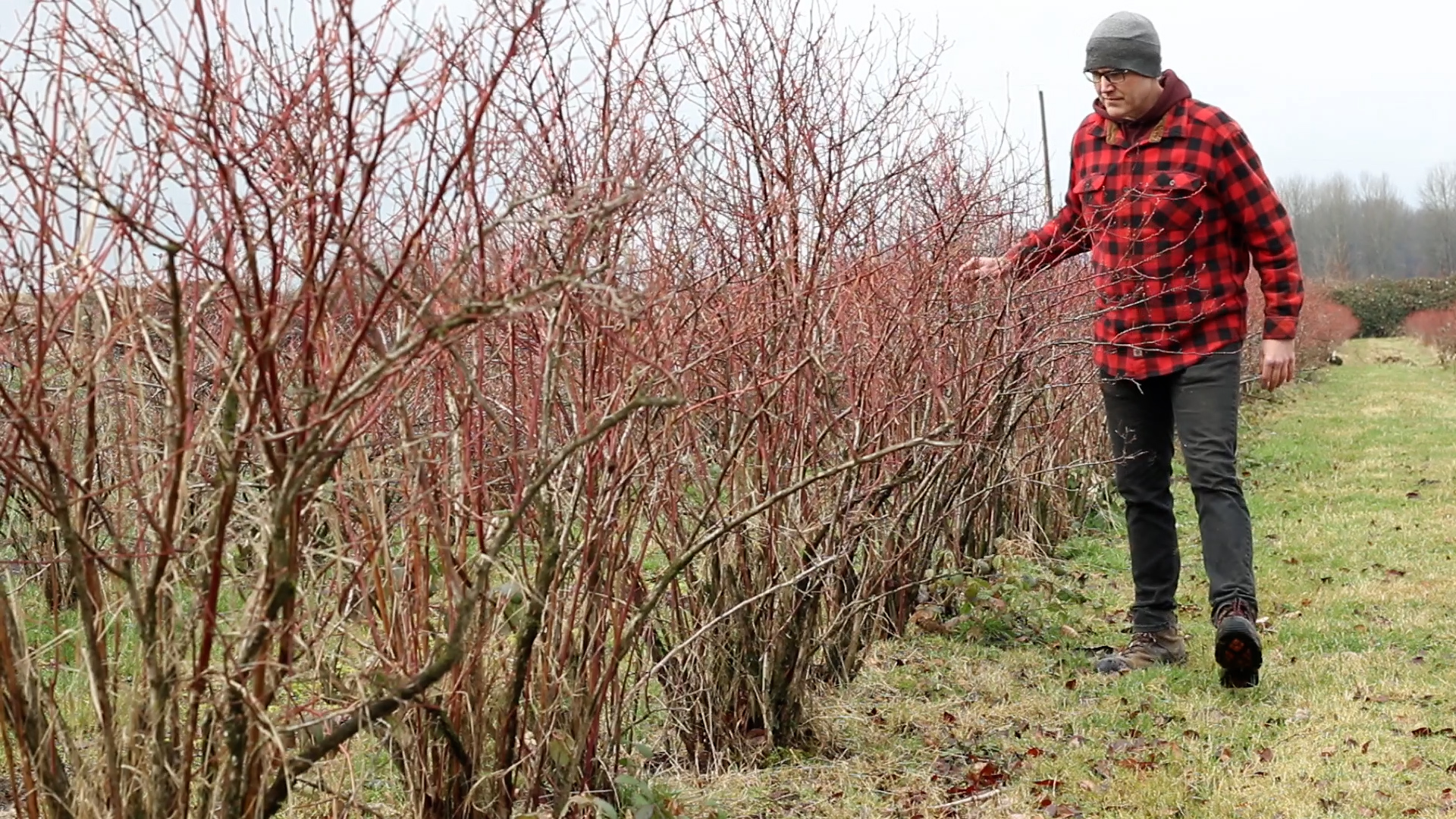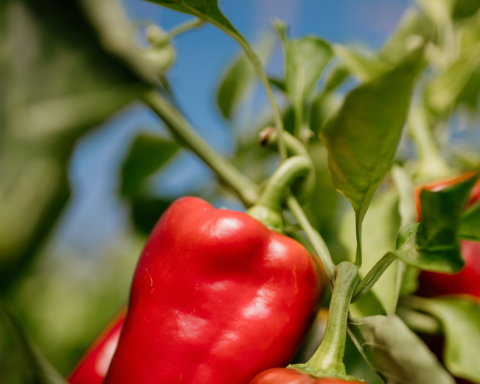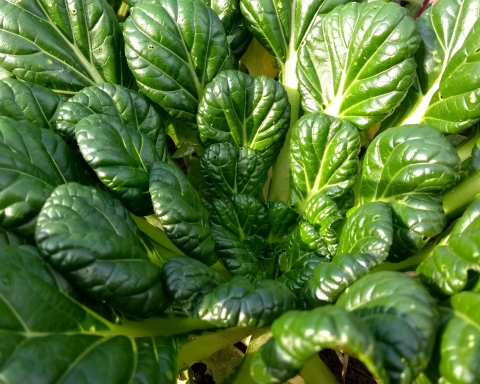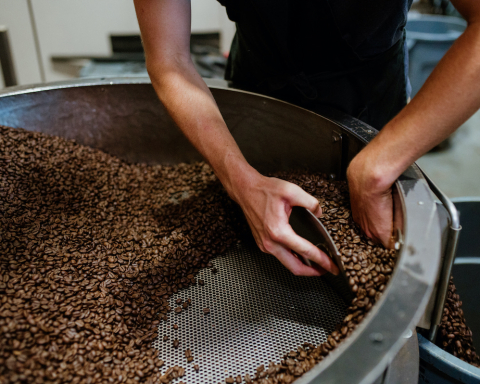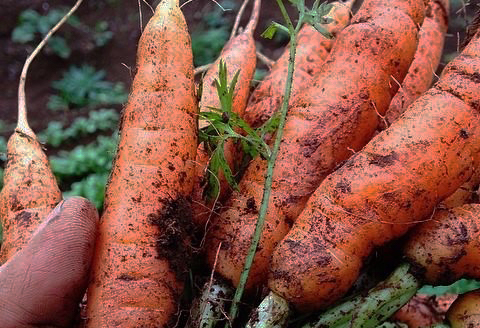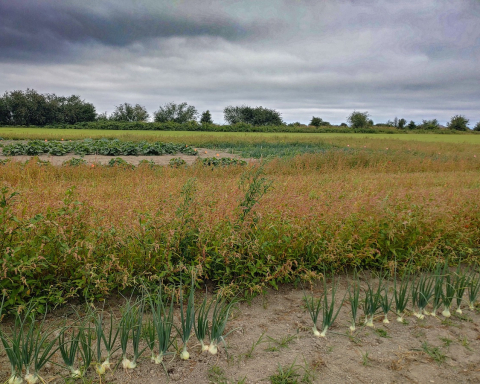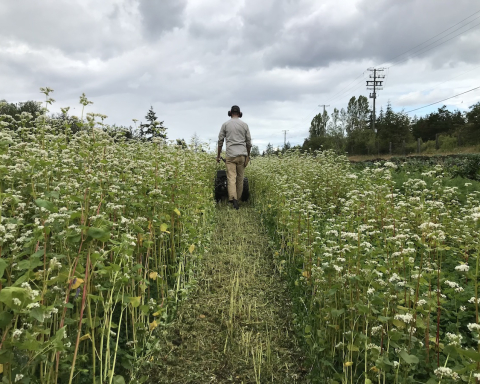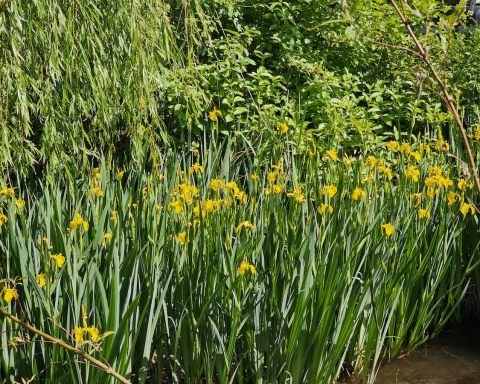By Brynn Hughes
The Glen Valley Organic Farm in Abbotsford, run by the Glen Valley Organic Farm Co-operative (GVOFC), sits on 50 acres of prime agriculture land. The Co-op purchased the organic farm in 1998, and today it hosts two organic vegetable businesses across twelve acres, twenty-two acres of peat bog pasture, and eight acres of forest.
GVOFC is deeply committed to environmental sustainability; their members are active with the BC Association of Regenerative Agriculture, the Community Farm Network, FarmFolk/CityFolk, and the BC Association of Farmers Markets. So, it is no wonder that they chose to also pursue an Environmental Farm Plan (EFP). “We first heard about the environmental farm plan five or six years ago. In March of 2022, we undertook a few assessments to get a better sense of what we should be doing on the farm,” said Chris Bodnar of GVOFC.
When GVOFC first completed an EFP in 2015 they didn’t pursue any projects. But when the farm received a notice their EFP needed to be renewed, Chris Bodnar, who, along with his wife Paige Dampier, owns and operates Close to Home Organics, one of the two organic vegetable businesses on the farm, they got in touch with the EFP program.
After connecting with their EFP Advisor, Darrell Zbeetnoff, Darrell visited Chris on the farm and worked through the EFP workbook with him, updating areas and suggesting projects they could take on to improve the farm’s environmental impact. Chris said, “We really benefited from just having someone with outside eyes come on to the farm, give some ideas, some feedback, some thoughts about how to prioritize some of the things that we might do and then guide us through the different funding options that are available to actually get that work done.”
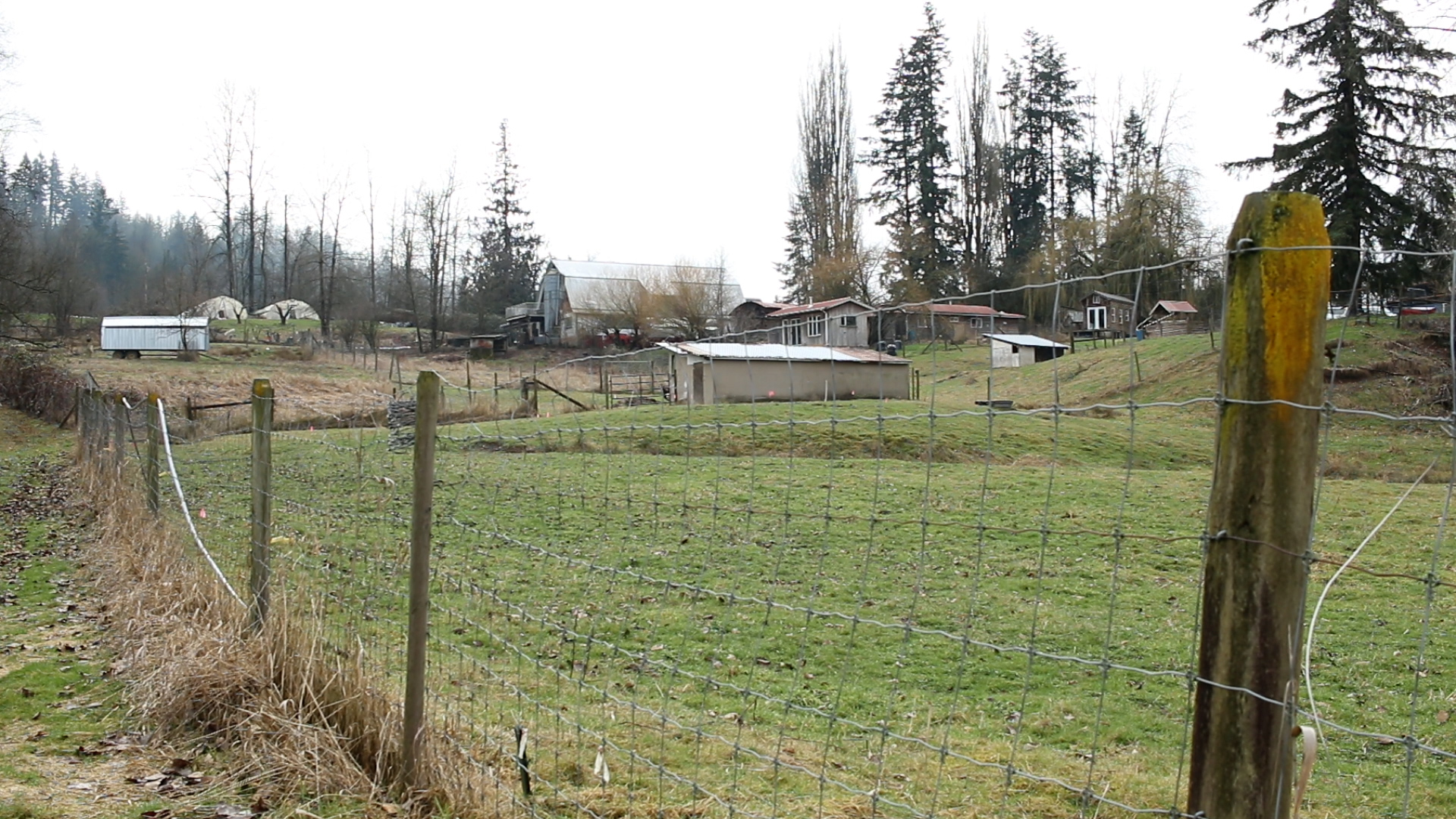
GVOFC’s long term goal is to re-establish a wetland in low-lying, peat bog areas. Currently the areas are just grazed annually, but the co-operative has recognized restoring these areas to their previous state as floodplain bogs will have a large impact to their overall farming operation. GVOFC anticipates that re-establishing a wetland area will not only provide habitat for amphibians and reptiles on the property but will also provide the farm with a better outcome in terms of water management by avoiding flooding in other areas which they want to protect for growing. According to Chris, “We’re not going to eliminate the water; we’re not going to get rid of the water and change its direction; but we need to be able to work with the water and understand how it goes across our property and what benefits it has to other organisms that live on the farm.”
The first step in dealing with the larger issue of water management and working towards their goal of re-establishing a wetland was to bring in some experts. With the assistance of the BMP program GVOFC completed a Biodiversity Plan and a Riparian Management Plan. These two plans highlighted the work needed to be done, as well as the regulations they would need to follow while completing the work to protect the biodiversity they steward on the property. In late 2022 they completed an additional BMP, a Construction Environment Management Plan (CEMP) in anticipation of completing
work on their ditches to manage water flow, and to eventually support a wetland area.
“Stacy from McTavish Consulting was the person we worked with once we got into the nitty gritty of our Beneficial Management Practice and doing the riparian area assessment and the biodiversity assessment,” said Chris. “She was really focused on understanding the property, giving us practical advice as to how to proceed with the work and comprehensive plans. It was a relationship like that that had a huge impact on our ability both to understand what was necessary and to really get a sense that we could do the work.”
Although the project is large, and will take several years to complete, Chris feels confident with the support he has received through the Environmental Farm Plan. Glen Valley Organic Farm now has a clear path forward and can be confident they are taking the right steps to improve their farming practices. Chris affirms that “It’s one of the few opportunities you have as a farmer where someone can come onto your farm and review your practices with you. It’s confidential. There’s no obligation on you to do anything that comes out of it. So, you can choose what you have the energy and the capacity to do in any given year or beyond.”
To learn more about Glen Valley Organic Farm Co-operative, please visit their website: glenvalleyorganicfarm.org/gvwp
If you are interested in learning more about the Environmental Farm Plan and Beneficial Management Practices Programs, please visit: iafbc.ca/efp
To stay up to date on new programs or announcements, please subscribe to IAF’s Growing Today newsletter.
The Glen Valley Organic Farm resides on the traditional and unceded territory of the Stó:lo First Nation, whose spiritual and cultural traditions have never been extinguished.
This project was funded through the Environmental Farm Plan and Beneficial Management Practices programs, which were funded by the Canadian Agricultural Partnership Program, a federal-provincial-territorial initiative. Additional funding has been provided by Clean BC.
Featured image: Chris Bodnar inspecting hedgerows. Credit: Investment Agriculture Foundation.


